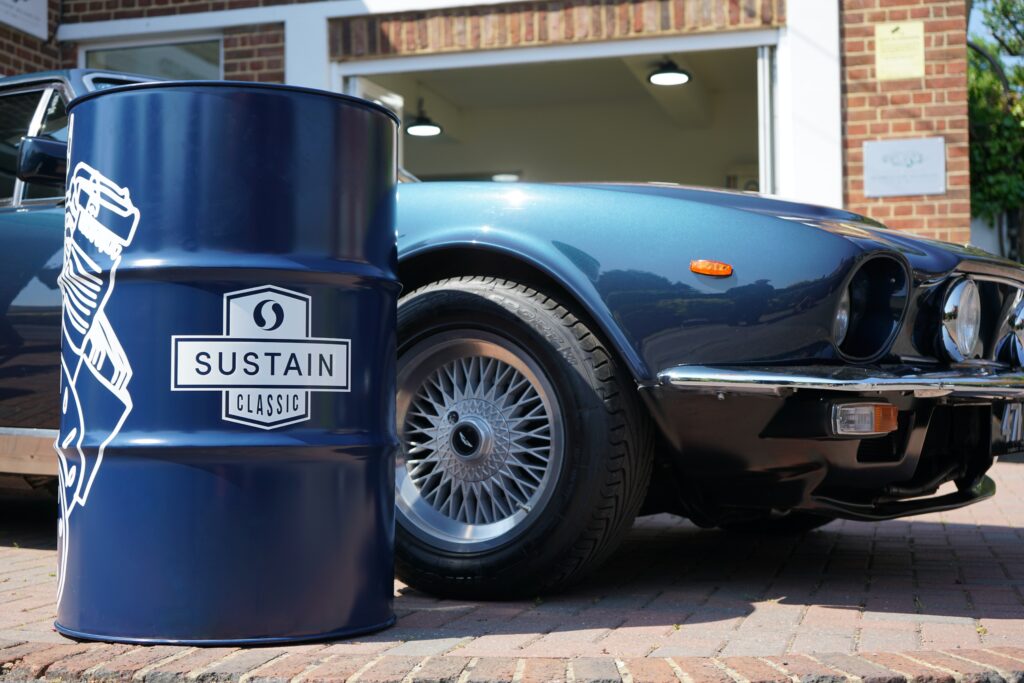Net Zero is coming, whether you like it or not. Just like many others around the world, the UK Government has committed to reach net zero greenhouse gas emissions by 2050, of which banning the sale of new petrol and diesel cars after 2035 is only a small part. There’s still rather a lot of debate around how (or if) we can get there, but the truth is that it’s leading to a huge shift in legislation – and public opinion – that will almost certainly make enjoying anything with an internal combustion engine increasingly difficult in the future. Yet the historic and classic car industry is estimated to be worth over £18.3billion to the UK economy each year, and it’s under threat – possibly even from unintended consequences.
With that in mind, a panel of experts from all aspects of the industry gathered at a seminar held by the Association of Heritage Engineers at the historic Brooklands site in Surrey. Discussing these fast-approaching dangers, Dr Mark Dibben – a distinguished fellow of the Schumacher Institute, a group dedicated to transformational change with sustainability in mind – put it quite clearly: ‘There’s a risk that the Government and other entities in charge of shifting the UK to carbon neutral could basically turn around and say “You lot are a waste of time, causing problems. You’re dirty, smelly… go away.”’
Dr Dibben has spent much time working with the VSCC and other businesses to help them understand how they can calculate their carbon footprint, and what steps can be taken to change the movement’s impact on the environment. Under discussion are proven pathways to reducing the classic car industry’s carbon footprint, while justifying its existence to policy makers and future generations.

Is carbon recovery a way towards sustainability?
Carbon recovery is a combination of both international carbon offsetting (schemes that protect rainforests and reduce fossil fuel usage) as well as UK-based carbon capture, such as tree-planting. As Dr Dibben explains: ‘We don’t have enough trees in this country anyway, so tree planting is an important thing we should all be doing. Just make sure the trees being planted are not taking up agricultural land and are right for the locale.’ An ongoing maintenance plan is also vital.
If done correctly, carbon recovery can make a positive impact to the environment, so, rather than simply cancelling out the carbon dioxide it produces, a company can actually take more carbon out of the atmosphere than it puts there. It might sound too good to be true, but organisations such as Tree-V, Net-Hero and The Woodland Trust all offer the ability to offset a company’s carbon emissions, and come with Government accreditation.
As part of the VSCC’s journey to become carbon neutral it has partnered with Tree-V, which is the FBHVC’s tree-planting initiative. While this has added a small amount to the annual subscription costs, members have been receptive, as VSCC club secretary Tania Brown confirmed: ‘They are so supportive of it, and obviously for our younger members it’s been really well received.
Are sustainable fuels part of our future?
Of course, we’ve heard a lot of noise about synthetic and sustainable fuels over the last year, and these could play a huge part in reducing CO2 footprint over the coming decades. These fuels take carbon out of the atmosphere during their production, effectively rendering them carbon neutral. However, the experts warned that these fuels are still a way off being offered at a scale that is commercially viable. David Richardson of Sustain Classic fuels explained: ‘Sustainability doesn’t come cheap. Even though we’ve got the first commercially available pump fuel available in the UK, and that’s a great step, it’s about three times the pump cost of standard petrol.’

For competition cars, and other cars that cover little mileage, it’s certainly viable today. Bentley specialist William Medcalf turned up in a vintage Bentley running on sustainable fuel, which his business has been testing over the last year as part of a wider move to reduce its carbon emissions. He said: ‘We’ve worked out that as a business, if we add 56p to our labour charge, we can recover our carbon footprint, which is incredible.’
Becoming carbon neutral isn’t just about trees and synthetic fuels, though: it’s about considering every aspect of your business, right down to your supply chain. In Medcalf’s case: ‘We’re lucky in that we manufacture parts in-house, which keeps the journey from manufacturing to the cars at about 18 feet!’
Similarly, the VSCC was able to make a big CO2 saving by switching its paper supply from Korea to a Scandinavian company. And Steve Dymock of the The Bugatti Owners Club had some sensible advice: ‘Like any business, the thing to focus on is the low-hanging fruit. The first thing you have to do is to understand where you are now, which is largely a paper exercise of working out where the carbon- heavy areas are. From that you can set a five- or ten-year target built into your business plan.’
One point universally agreed at the conference was that social change is coming. Though there’s no one-size-fits-all approach, a unified industry voice from organisations such as the AoHE and HCVA will go a long way to demonstrating to outsiders that our heritage can be both preserved and enjoyed in an environmentally responsible, guilt-free way.
So what can you do as an enthusiast? An individual classic car’s CO2 emissions can be offset with Tree-V or similar for around £20 for the year. It might not be the long-term solution, but it can make a difference right now. Running your classic on synthetic fuel isn’t practical for most just yet, but even being part of the discussion is a step in the right direction. Our future might just depend on it.




